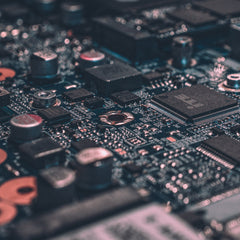The debate over net neutrality has the potential to transform the current infrastructure of the internet. Net neutrality is primarily focused on whether Internet Service Providers (ISP) should be able to provide “fast lanes” or throttle speeds based on bandwidth consumption, and as a measure to provide quality internet speeds. Certain corporations such as Netflix provide services that consume mass quantities of data, which can drastically slow down internet speeds for other users. If situations like these enable ISPs to be able to charge large data consumers for quality service, then there will be an impact on a corporate level that could trickle down to the level of individual consumers. Net neutrality has the potential to alter the future of the Internet of Things (IoT) as more internet-enabled devices are generating data and using bandwidth.
The issue of net neutrality has been around for a several years at this point, but IoT technology has barely been a part of the discussion. Most wireless devices haven’t reached the surface of the net neutrality debate due to the fact that most devices consume minimum amounts of data and require very little bandwidth. This is beginning to change as internet-enabled devices are increasing in quantity in an effort to create truly integrated smart homes. Even though individual devices don’t utilize that much data on their own, IoT devices can use a moderate amount of bandwidth when multiple devices are unified within a network.
Large networks of smart devices can have a minor impact on internet speeds for in-home Wi-Fi, but IoT devices are unlikely to consume enough data to drastically affect wireless communication on a larger scale. These devices may not be data-heavy, but they do rely on internet speeds to optimize functionality. Brian Kelly, co-founder of Golgi, stated, “When it comes to connectivity, speed is everything. Eighty percent of smartphone users now expect apps to load in three seconds or less” (TheNextWeb). This is synonymous with IoT expectations as most smart devices are integrated within smart phone applications. The speed and convenience of the IoT is what makes it unique and accessible for the average consumer.
Most consumers are opposed to ISPs being able to charge for better service. The current IoT infrastructure could increase in complexity if the government allows ISPs to throttle internet speeds and limit bandwidth consumption for internet consumers. However, the government, and a majority of the consumers and small businesses, are against tampering with internet speeds and that is unlikely to change. Title II of the Communications Act, which was established within the past couple years, bans throttling, blocking and paid prioritization of any type.
It is safe to say the IoT will generally be unaffected by the issue of net neutrality. The ability to freely use the internet is something that is coveted by most internet users, thus it is unlikely that there will be any successful dismantling of the Communications Act. Even in the improbable event that ISPs were given the power to control the internet, there wouldn’t be any dramatic impacts for the IoT. This is due to the fact that these networks of devices are not consuming bandwidth in quantities even remotely close to that of companies like Netflix. The future of the powerful, efficient, and internet-enabled smart home is in good hands.





